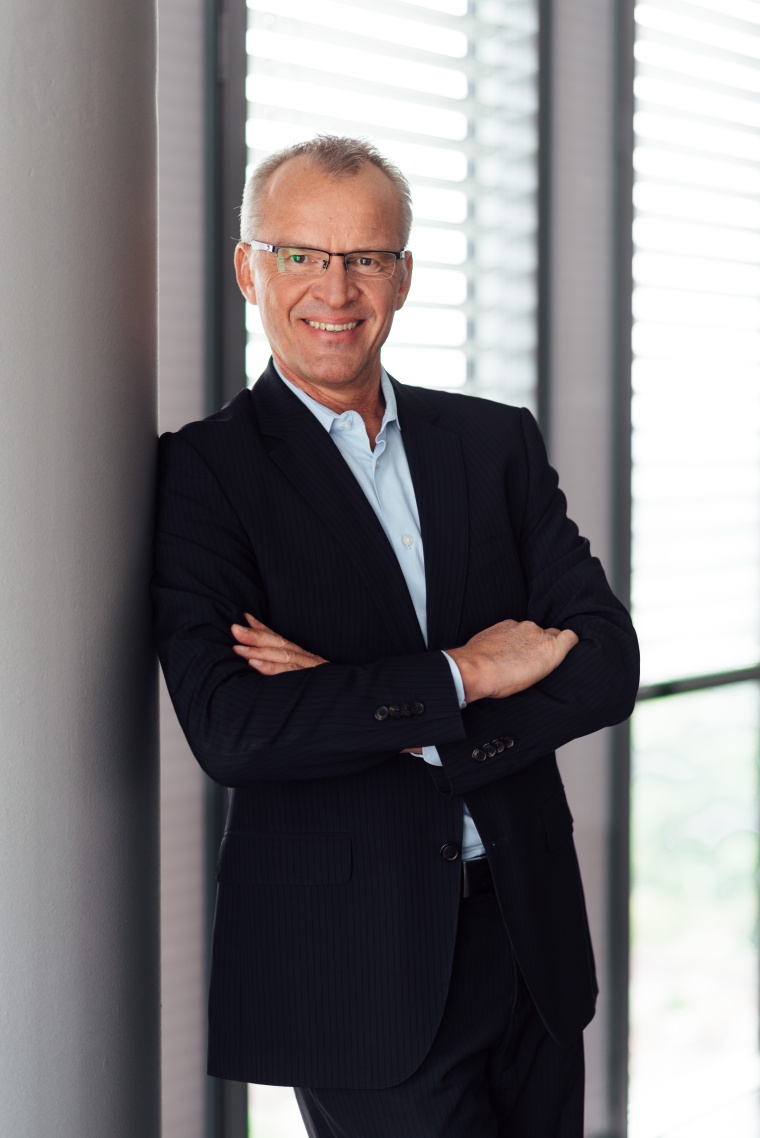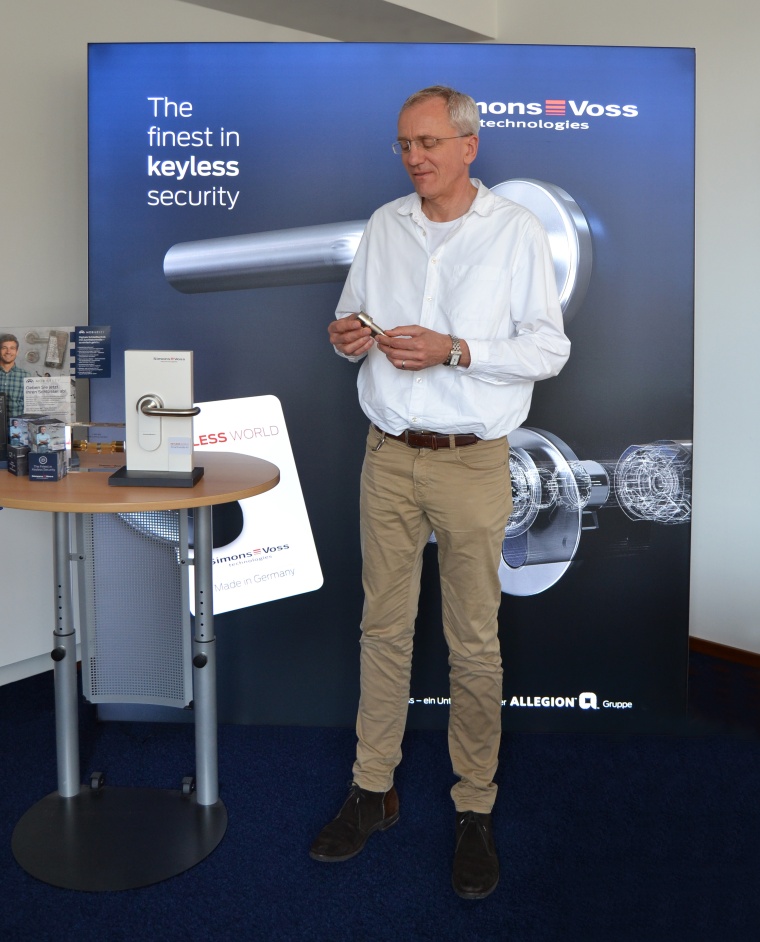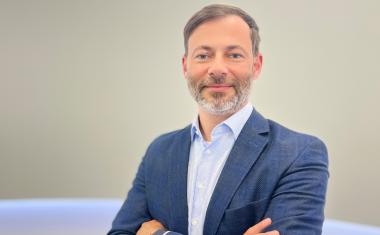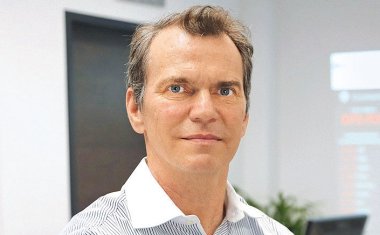“You Need an Overall System to be Successful”


GIT SECURITY: Mr. Voss, what pushed you to form a company 25 years ago?
Ludger Voss: I already knew Oliver Simons through our studies together in Aachen. I studied Electrical Engineering, Oliver studied Business Administration. I worked as a system engineer at Siemens, Oliver as a consultant at McKinsey. After visiting the Security trade fair in Essen in 1994, he wanted (together with the subsequent SimonsVoss Chief Executive Bernd Dietel) to invest in electronic access control. Oliver showed me the various systems that in those days were contained in electrical control cabinets, and I thought to myself, “That can be a lot simpler ... Why not build everything into a compact system in a standard format? Low energy, wireless, installed in minutes. “
So the basic idea existed what happened next?
Ludger Voss: We got a large loan from the bank, rented a small office in a loft in Schwabing, brought in the excellent system architect and strategist Herbert Meyerle, whom I knew very well from my time at Siemens, and started up in November 1995. At first we weren’t successful. The digital mortise lock was too expensive and there were too many variants because of the complexity of the doors. Then in the fall of 1997 we had the idea that saved us, to further miniaturize the system and integrate it into the knob of the locking cylinders. The first successful installations were made in 1998. The dealers immediately saw an enormous potential in the digitalization of mechanical lock cylinders and that’s when the success story started.
How would you summarize the jubilee year for the company?
Ludger Voss: Never give up ... the road to success is difficult. It is not sufficient for our idea just to develop one product, rather you must develop an overall system. You need solutions for every type of door in our industry; you need transponders, programming devices, network components, management software. And in addition, we had to develop an entirely new market before we could achieve our first turnover. But a long-term contribution to our success has been made by our core of long-serving employees who have kept the know-how in the company and who themselves have made many innovations possible.
A look to the future: in which direction is the technology developing?
Ludger Voss: In our opinion, the development is heading towards universal connectivity. Components must be able to communicate amongst each other, with cloud-based services, with central administration points, and increasingly also with smartphones. Many things are made simpler for the user by this. At the same time, however, the requirements for protection against hacker attacks are increasing rapidly. SimonsVoss product developments meet these concerns. We have been incorporating so-called Secure Elements for many years, just as used in banking applications, in all our new developments. Universal connectivity is provided by additional NFC, BLE, and Wireless Networking interfaces. The ‘Internet of Things (IoT)’ is not new for us, by the way: we have been networking locking components since 2003 wirelessly and contact them over IP networks.
Mr. Sommer, how has the young market for digital locking cylinders of those days developed?
Bernhard Sommer: What originally really was a technology-heavy idea – namely to digitalize locking cylinders – has developed over the past 25 years into an industrially influenced market. SimonsVoss has not only been involved in this development, but has also largely driven it forward. We are continuing seamlessly on this course today as part of Allegion and are very successful.
What prospects does digital locking technology show for the next five to ten years?
Bernhard Sommer: We expect increased networking of digital locking systems within security or building management systems. And we expect that Internet, web and cloud applications will become more widespread and provide significantly simpler operation for the users.
And how about the touchy subjects of IT security and data protection?
Bernhard Sommer: The requirements placed on the technology with regard to the security of data protocols, data access and protection against hacking are undoubtedly growing. Digital locking systems are an ideal solution when it comes to data protection within a company. They can help to ensure that the requirements of the GDPR, for example regarding access to the personnel or IT departments, can be complied with.
What challenges does the industry face in your opinion?
Bernhard Sommer: The subject of the lifecycle cost – the operational cost over the entire product life – is also coming into the foreground. This means for us that the even higher expectations will be made of the products with regard to the product life and also the maintenance intervals. A focal point for our product development teams is achieving a long life with extremely low operational costs. We want to provide additional benefits for our customers in this way.
And finally, what changes are you preparing for in the near future?
Bernhard Sommer: We expect standards in building technology to become widespread over the next five to ten years. We will see to what extent these standards can be applied to digital locking technology. Apart from that, we continue to ensure top customer service and support for our local sales partners with very quick reaction times and rapid solution proposals
most read

Safety and Security in an Emergency: How companies take responsibility with strategic personal protection and amok prevention
Personal protection & amok prevention: strategic concepts, training & responsibility for corporate safety and security

When the Internet stumbles: Why DNS is important
When DNS fails, the internet stumbles-AWS outage proves resilience and redundancy are vital for digital trust

Between War and Peace: Hybrid Attacks and Their Impact on Critical Infrastructure
FOCUS TOPIC GERMANY - Hybrid attacks and drones: Security risks for Germany, its companies and critical infrastructure.

Integrated and Futureproof: Traka’s Next Chapter
Interview with Stefni Oliver on Traka’s Vision for the Future

Airbus Defence and Space: Security as a strategic pillar of Europe's defense capability
Airbus Defence and Space protects sites, technologies and employees with modern security and cyber solutions - strengthening Europe's resilience in uncertain times






